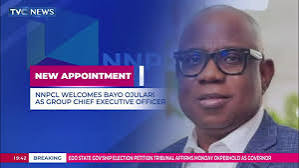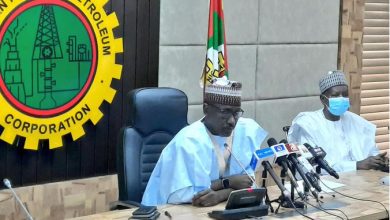Threatening trajectory: EFCC Boss Shed more Light

Chairman of the Economic and Financial Crimes Commission (EFCC), Olanipekun Olukoyede, was misquoted regarding a comment linking Nigerian youths with criminal activities, there is only a minor difference between what he reportedly said and the misrepresentation. And his observation is serious enough to demand attention.
Olukoyede ran into trouble when he reportedly said “It is worrisome that seven out of 10 students today are involved in cybercrimes.” A post on the anti-corruption agency’s X page had credited him with the comment. He was speaking with a delegation from Daar Communications Plc at EFCC headquarters in Jabi, Abuja.
These are the youths we are preparing to be leaders of tomorrow. The media should not relent in enlightening them on the evils of such criminal practices,” the EFCC boss was quoted as saying.
This is ordinarily candid talk. But it did not go down well with some people, particularly the National Association of Nigerian Students (NANS), which promptly demanded that the anti-graft agency boss must provide verifiable proof to support his claim or retract his statement.
Rather than NANS getting angry with the EFCC boss, the association should look inward. After all, at its last election, guns boomed. That was condemnable. Definitely, not all Nigerian students or youths would sanction such conduct.
Clarification from the EFCC calmed the brewing storm. The commission’s spokesman, Dele Oyewale, in a statement, clarified that Olukoyede’s observation was misrepresented. According to him, the EFCC boss had expressed concern about “the rising incidence of internet-related crimes involving youths across the country.
He said Olukoyede “did say that reports and intelligence available to him indicated that, unless this trajectory of youth involvement in internet fraud is addressed and reversed, the future of their leadership of our great nation may be threatened, and if it continues in the next 10 years, 7 out 10 of our youths may be getting involved in cybercrimes.” He described the misinterpretation as “needless.” Perhaps the commission should have communicated what its boss said more clearly.
Nobody should castigate the EFCC boss for his candour. As the anti-corruption czar, he must know what he is talking about. Nigerians are regularly bombarded with news of suspected internet fraudsters rounded up by EFCC officials all over the country. Most of those involved are youths. We also have an increasing number of youths involved in cultism, armed robbery, ritual murders, etc.
Olukoyede’s statement should be seen as a clarion call to address the worrisome trend before it snowballs into something worse. Indeed, according to the EFFC’s clarification, “Olukoyede is doubly committed to the progress of Nigerian youths and this underscores his calls for collaborative interventions in offering them more productive and sustainable alternatives.






